CLAS 357
paterfamilias (cont.)
February 5, 2024
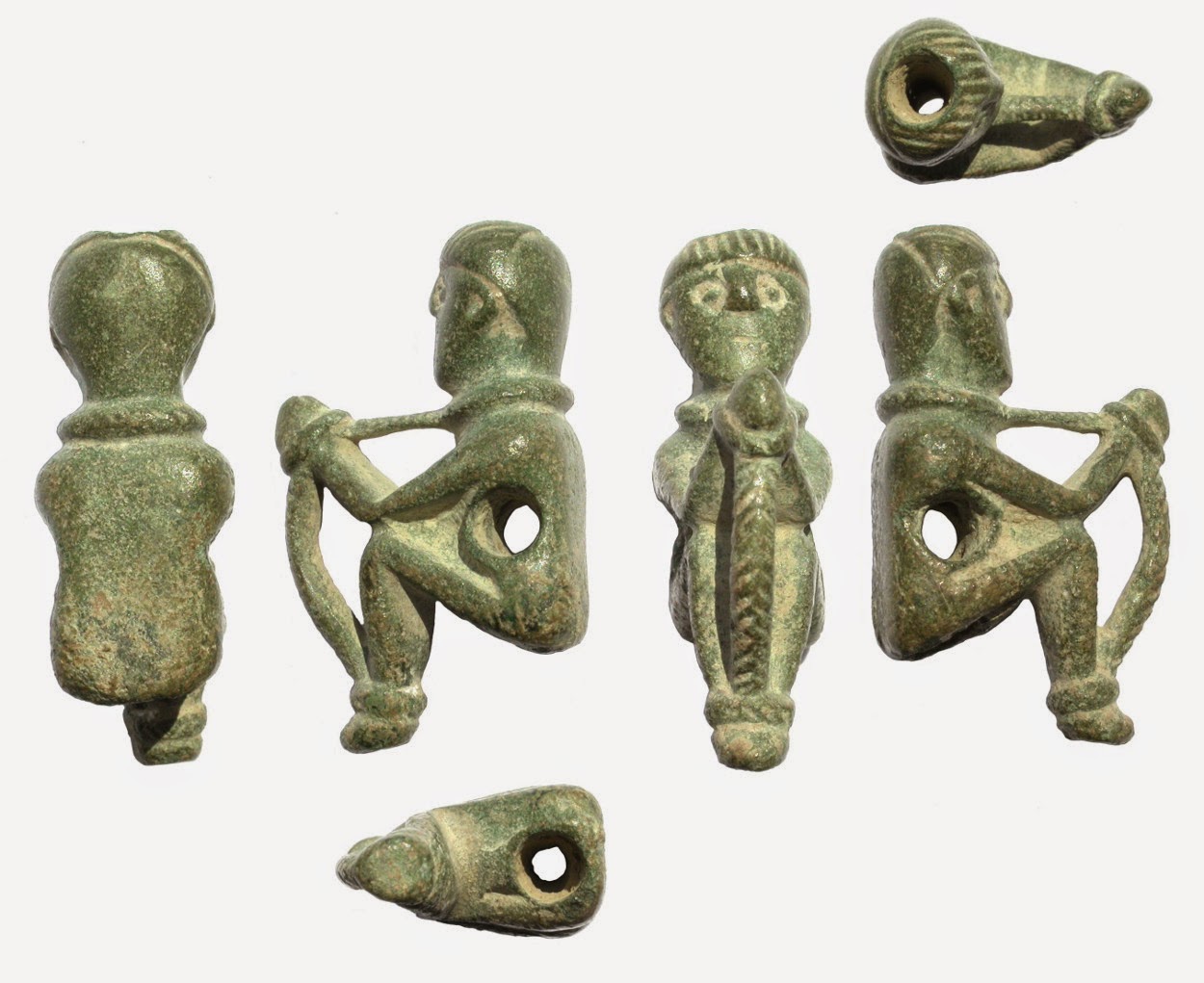
Bound captive figurines (Roman Britain, 2nd-3rd centuries CE)
Response #1 Topics (due Wednesday, February 7)
Plautus’ Captivi (ca. 190 BCE): problematizing Roman notions of slavery, highlighting the institution's arbitrariness ("We are the gods’ volleyballs!", 22)
- Plautus (254-184 BCE): freed slave (?); "slave drama" & slave actors, diverse audience; varied modern assessments of 20 plays (e.g. Amy Richlin, Slave Theater in the Roman Republic, 2017)
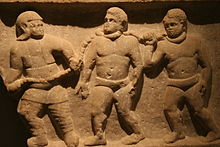
marble relief of Roman soldier leading captives (Turkey, ca. 200 CE)
- prologue spectacle: two chained captives onstage, call-out to low status spectators in back (1-3) vs. citizens ("I owe you some information", 15-16); Hegio's two enslaved sons (Tyndarus, Philopolemus)? captives' plan (Tyndarus, Philocrates)?
Captivi 46ff.
So without knowing it, these two have
Devised and ingeniously improvised a plot,
A masterpiece of their own making, so that
This one will stay here as his father’s slave, (points to Tyndarus)
Though he has no idea his master is also his own father.
When you think about it, we mortals are wretched fools!
What follows here is fact for us actors, even if it’s fiction for all of you.
There’s one more thing I’d like to say just a few words about:
It really is in your best interests to pay attention to this play, since
It’s not the same-old-same-old you see in other comedies . . .
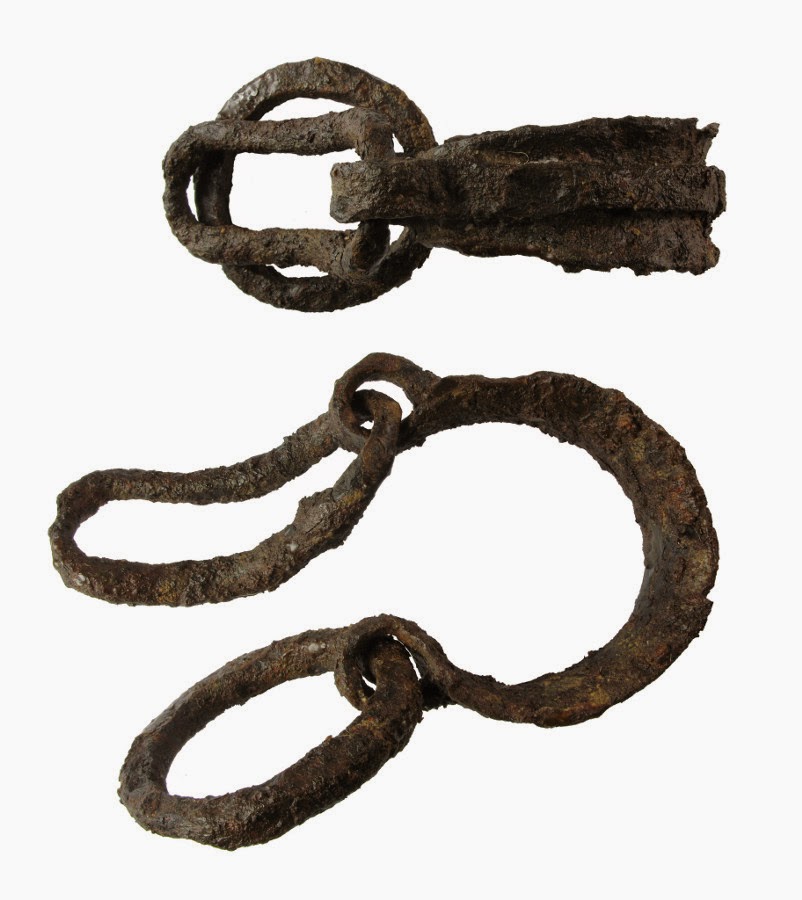
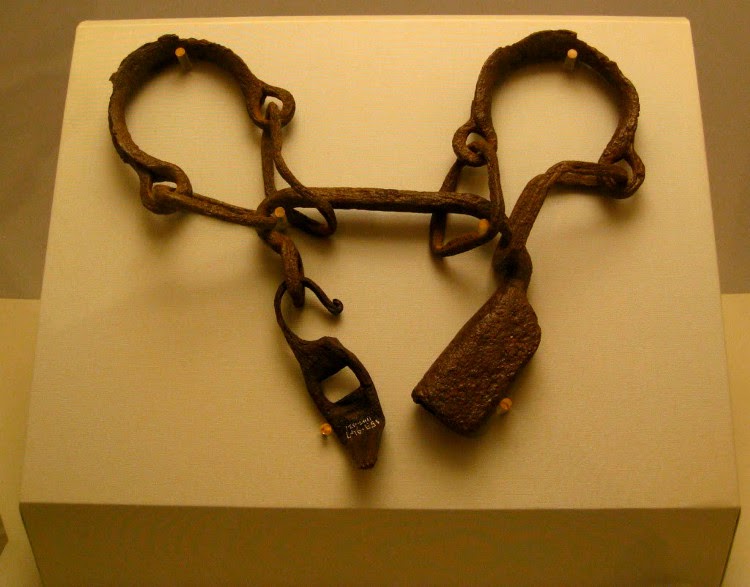
Slave shackles (Roman Britain, 2nd-3rd centuries CE)
- main prop to stage slavery's violence: shackles & chains (heavy ones removed by Guard at Hegio's orders, still cuffed, Scene 2: "A free captive is like a wild bird: give it / Just the slightest chance to fly and it flees", 116-17 :: "I'm pretty sure we'd all prefer to be free men / Rather than slaves", 119-20); collar & cuffs removed at 354f.; Tyndarus sent to mines ("Take him right off to Hippolytus the blacksmith / And have some sturdy shackles slapped on him", 734-5); Tyndarus' return in Scene 17 (crowbar, shackles); final transfer of chains?
- serious comedy (dramatic tension, irony & tragic mistakes, e.g. Aristophontes: "Father? What father? He's a slave!", 574, Hegio: “Did I have children only so that I would be childless?”, 763; + philosophical & ethical questions), one comic character, Ergasilus: parasite ("The call-girl", Scene 1); brings news from the harbor (871ff., food humor & fantasies) – free person enslaved?
- slavery & mastery as social roles (vs. "natural slavery"):
Captivi 274-6 (Philocrates plays the clever slave to deceive Hegio)
Excellent! I’d take him over Thales the Wiseman, who was just an
Amateur in comparison with my master here!
Just look at how cleverly he’s playing the part of a slave.
Tyndarus plays the "noble" master: "benevolent mastery" & appeal to ethics of reciprocity (cf. Seneca)
Captivi 297-316
Tyndarus
He was just doing his duty
When he gave it to you straight—though I was trying
To keep you in the dark about my wealth and family, Hegio.
Now that I’ve lost my country and liberty
I can understand why he’d fear you more than me.
An enemy assault has made him and me equals.
I can remember when he didn’t dare say a word against me; now he has
The freedom to do as he wants. Fortune lifts and lowers us as she pleases:
I once was a free man—and she’s brought me down from the top to the bottom;
I’d grown accustomed to giving orders and now I must take them.
I can only hope to find a master just like I was,
One from whom I can expect fair and gentle treatment.
If you don’t mind, Hegio, I’d like to offer you one piece of advice.
Hegio
Go ahead.
Tyndarus
I once was just as free as your son.
His freedom and mine were both taken away by an enemy attack.
He is now a slave in my country, just as I am in your house.
Surely a god is watching and listening to what we do, and will see
That his treatment there matches your treatment of me here.
Treat me well and he’ll treat your son well—and vice-versa.
My father misses me just as much as you miss your son.
- plot-complication: Elean captive Aristophontes (Scene 8); exposed Tyndarus becomes parodoxical “noble/aristocratic slave”
Captivi 682-8 (Tyndarus to Hegio after restraints are brought by slave-enforcers Boxer, Killer, Banger)
I’m not afraid of dying, as long as it’s not for an unjust cause.
If he does not return and I die here, at least
What I did will be remembered after my death,
How I restored my master to his freedom, father, and fatherland
After he had been captured and enslaved by the enemy,
And how, to save his life, I choose to expose
Myself to the ultimate danger.
- Tyndarus' self-defense: double bind of serving two masters
Captivi 710-16
Tyndarus
Well, I beg to differ with you: I say it was the right thing to do.
Suppose one of your slaves did the same thing
For your son: wouldn’t you be very grateful?
Wouldn’t you want to free that slave?
Wouldn’t he be the most beloved slave in your house?
Please, tell me.
Hegio
I suppose.
Tyndarus
Then why are you so angry with me?
Hegio
Because you were more loyal to him than to me.
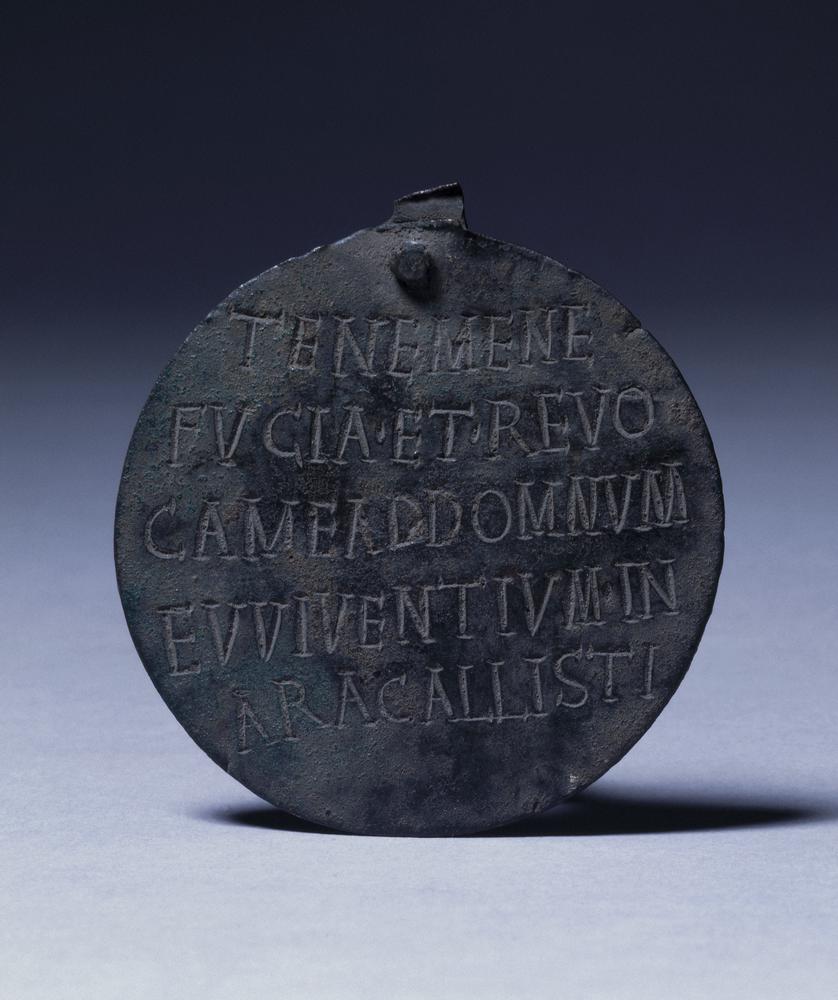
4th century CE bronze Roman slave collar tag ("hold me, lest I flee, and return me to my master Viventius on the estate of Callistus")
- Stalagmus: his background/history (tense confrontation with Hegio, Scenes 15-16):
deracinated slave from Sicily (887)
response to Hegio's "my charming little piece of property" (954): "I used to be handsome and charming, but I've never been a 'good man'", 956)
Hegio: "Hard to believe he was so respectful [morigerus, "obedient", "compliant", i.e., as a subordinate to a superior] as a boy" (967)
cf. Tyndarus' original name Paegnium (“Plaything”, 984); Philocrates: “I can assure you he had a proper and respectable upbringing” (992); cf. Ergasilus' pederasty joke to Hegio (Hegio: "I'm easy." :: Ergasilus: "Old habit from when you were a boy, huh?", 867)
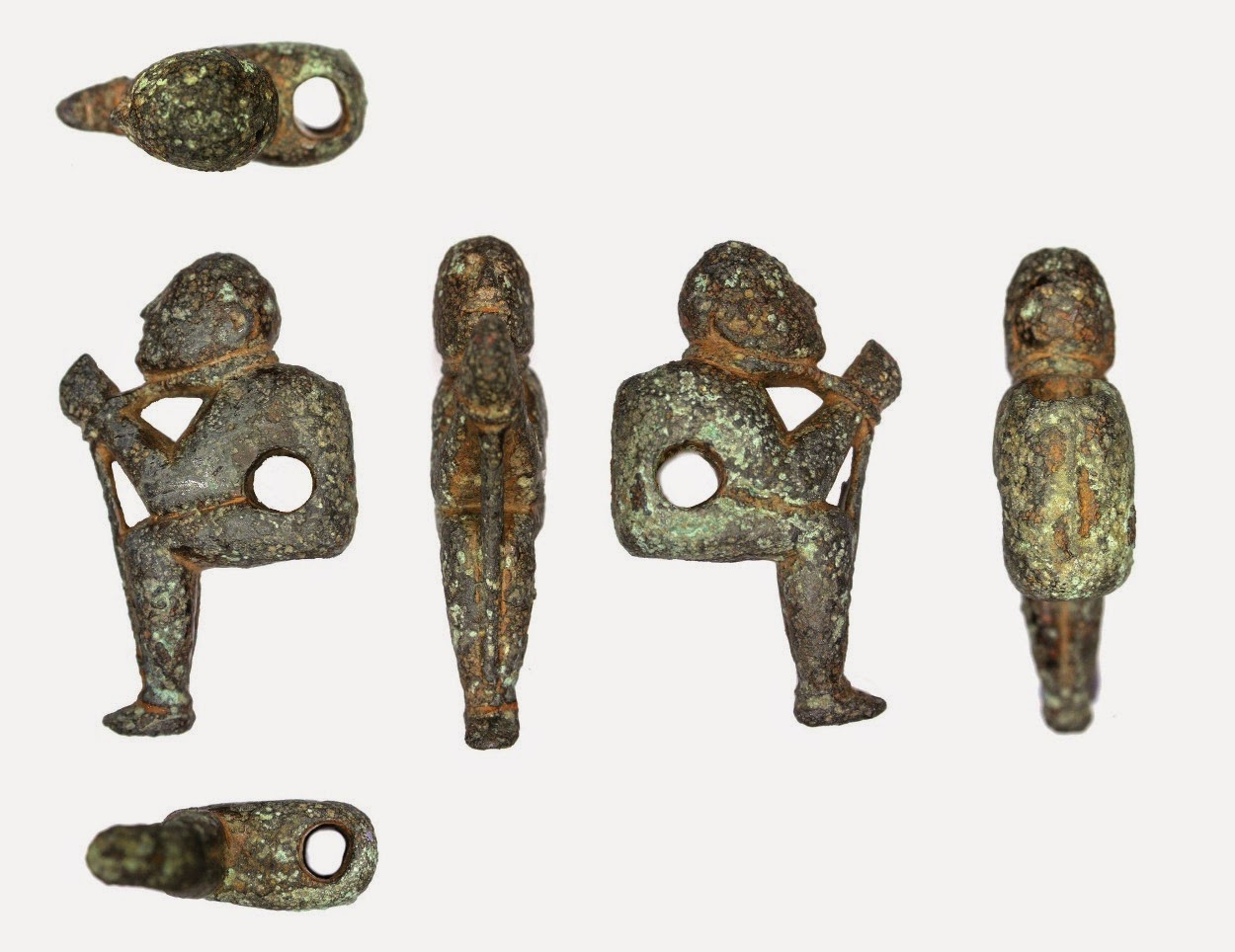
Captive slave figurines (Roman Britain, 2nd-3rd centuries CE)
- Stalagmus' harsh economic perspective: "Is he [Paegnium/Tyndarus] still alive?” :: “I got my money. The rest I don't care about” (989); final transfer of chains & the play's last word: “Just the thing for someone who has nothing of his own” (1022)
- epilogue: vouching for the play's seriousness ("There are very few plays like this around for playwrights today, / Edifying plays that make good folks even better", 1027-8) + call for applause





